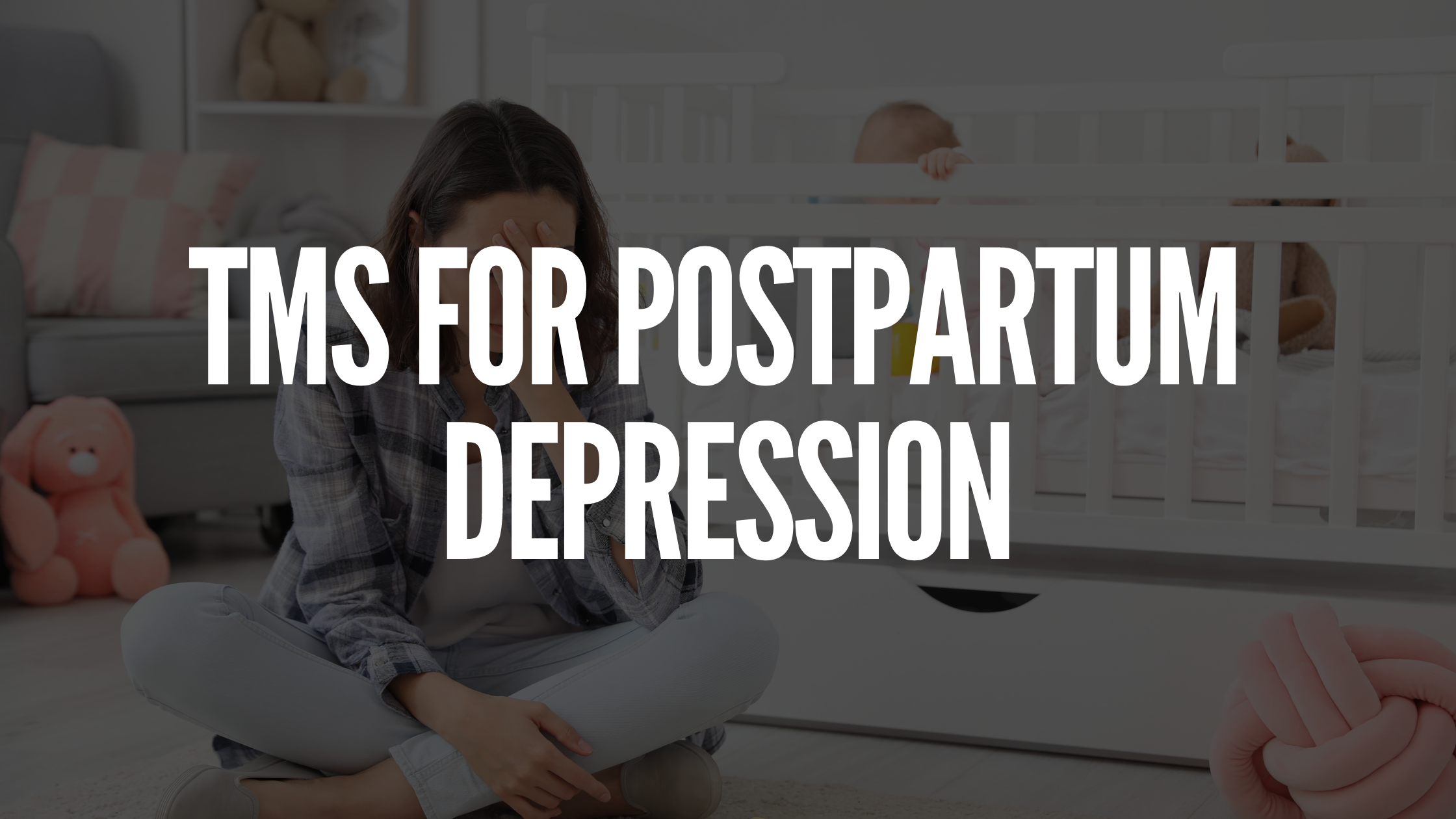TMS For Postpartum Depression: Maternal mental health disorders are more common than you might think. In fact, according to the Royal College of Psychiatrists, 1 in 5 women experience some form of mental illness during pregnancy or in the first few months after childbirth.
There are many different types of maternal mental health disorders, but some of the most common include Postpartum Anxiety, Postpartum Panic Disorder and Postpartum Obsessive-Compulsive Disorder. This article will briefly discuss these disorders, as well as their symptoms, and how Transcranial Magnetic Stimulation (TMS) can help.
Approximately 6% of pregnant women and 10% of postpartum women develop anxiety, according to Postpartum Support International. Sometimes they experience anxiety alone, and sometimes they experience it in addition to depression.
Anxiety is a normal part of pregnancy, but for some women, it can become overwhelming. Symptoms of anxiety during pregnancy include feeling constantly on edge, racing heartbeat, difficulty concentrating, and insomnia.
In addition to generalized anxiety, there are some specific forms of anxiety that you should know about. One is Postpartum Panic Disorder. This is a form of anxiety with which the sufferer feels very nervous and has recurring panic attacks. During a panic attack, she may experience shortness of breath, chest pain, claustrophobia, dizziness, heart palpitations, and numbness and tingling in the extremities.
Another form of anxiety is Postpartum Obsessive Compulsive Disorder. Postpartum Obsessive-Compulsive Disorder (OCD). Postpartum OCD is a form of postpartum anxiety disorder. It’s characterized by obsessive thoughts and actions in response to a perceived risk to their baby that persistently disrupts daily life.
TMS For Postpartum Depression: How Can TMS Help?
TMS is a non-invasive, FDA cleared treatment for depression that uses magnetic fields to stimulate areas of the brain that are underactive in people suffering from depression. TMS is an outpatient procedure that is performed in a doctor’s office.
“Multiple studies show that TMS can provide safe and effective treatment for women with postpartum depression. A recent study published in 2020 explored the effects of rTMS in women diagnosed with postpartum disorder. In this study, six women diagnosed with postpartum depression were given 20 sessions of rTMS over the course of four weeks. The severity of their depression and anxiety symptoms was observed each week during treatment, three months after treatment completion, and six months after treatment completion, using various psychiatric rating scales and cognitive assessments.
Of the six women who participated in this study, four of them achieved remission according to the Edinburgh Postnatal Depression Scale (EPDS), the most commonly used screening tool used to identify depression in new mothers. According to the Beck Depression Inventory (BDI), a patient questionnaire that measures the severity of depression symptoms, only one patient achieved remission and two responded to treatment. Assessment scores for the patients’ depression symptoms continued to be below entry levels three and six months after treatment completion.
These results showed that TMS improved depression symptoms in women diagnosed with postpartum depression, even six months after treatment completion, and was safe for women who were breastfeeding.”
If you’re looking for a safe and effective treatment for postpartum depression, consider transcranial magnetic stimulation. Get in touch with us today at info@psyfitms.com or learn more at www.psyfitms.com.

